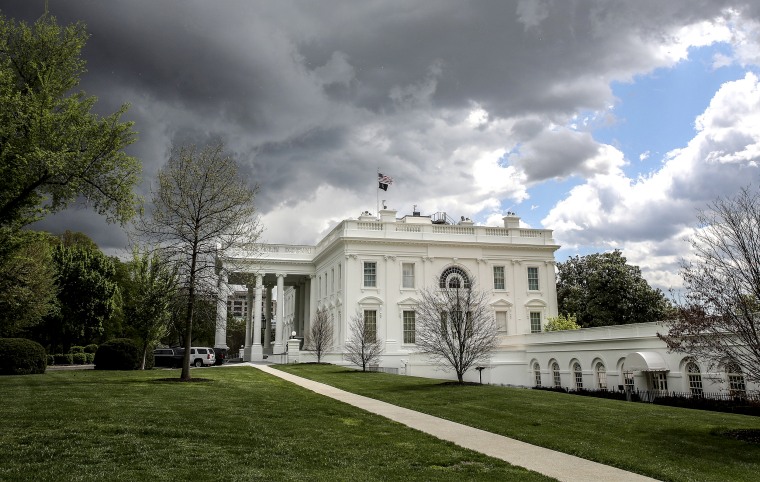Federal Reserve Chairman Jerome Powell last week acknowledged the severity of the economic circumstances, while conceding there are limits as to what the Fed can do through monetary policy. He urged elected officials to approve "additional fiscal support" -- i.e., Powell wants them to spend a lot money -- in order to "avoid long-term economic damage."
House Democrats appear to be on the same page, passing a $3 trillion economic aid package last week called the HEROES Act (the Health and Economic Recovery Omnibus Emergency Solutions Act). At the time, the legislation appeared to be an opening bid from House Speaker Nancy Pelosi (D-Calif.), who hoped to see a Republican alternative as part of the negotiations process.
So far, GOP officials have offered nothing, and according to a new Washington Post report, White House officials aren't eager to come up with one -- because they're no longer sure it's necessary.
White House officials are increasingly predicting a swift economic recovery as they break off talks with Congress on additional federal stimulus, expressing optimism that the "reopening" of states will reverse the economic damage caused by the coronavirus. President Trump and his senior advisers, encouraged by the relative strength of the stock market and some indicators like credit card receipts, have in recent days expressed confidence the U.S. economy will roar back to life in the second half of this year despite staggering increases in unemployment and small business closures.
To be sure, we're dealing with unique economic circumstances -- a crash caused by a deadly pandemic -- which make predictions about the near future difficult
But Donald Trump and his team have clearly put on their rose-colored glasses. As the Post's report added, Kevin Hassett said the administration has "a little bit of a luxury to watch and see" before having to approve additional economic aid.
"I've been really positively impressed by how quickly things are turning around," Hassett told reporters. He later added. "I was pretty depressed about how bad it looked a few weeks ago, but you can really see it turning on faster than I thought."
Obviously, it'd be great for everyone if Hassett and his optimistic colleagues were correct. The trouble is, Hassett is nearly always wrong.
The New York Times' Paul Krugman recently took stock of the conservative economist's record, noting Hassett's failed predictions from 1999 about the stock market. And Hassett's denial in the mid-2000s about the housing bubble. And Hassett's failed predictions about inflation in 2010. And his misguided projections in 2017 about Republican tax cuts.
What's more, as Rachel noted on the show last night, Hassett also created a "cubic fit" model, embraced by Trump World, that projected that the daily fatalities from COVID-19 would drop to zero by, well, now.
And now this same guy is "impressed by how quickly things are turning around"? And that in turn has the led the White House to approach economic talks with far less urgency?
Larry Kudlow, the director of the White House's National Economic Council, added yesterday, "Things are starting to turn -- that's my take." Again, it'd be great if that were true, but the reliability of Kudlow's predictions -- about the economy and the pandemic -- are arguably worse than Hassett's.
I'd love to see the landscape and feel a sense of optimism, but given Team Trump's track record for predictions, especially related to the coronavirus pandemic, it's awfully tough to have confidence in the assurances these guys are peddling.

